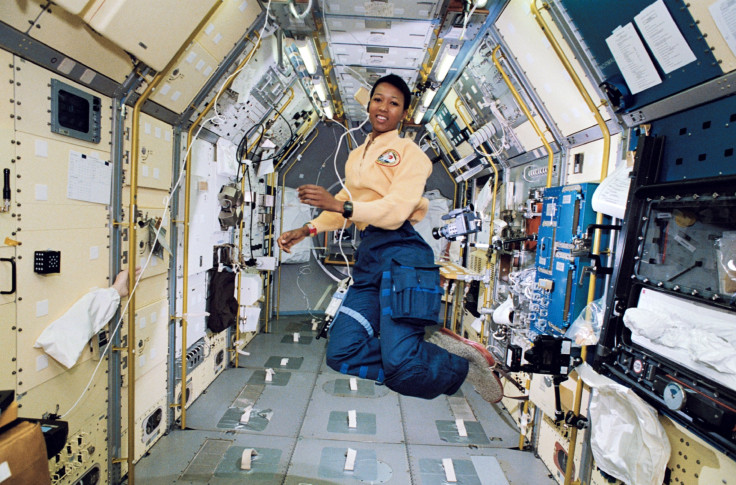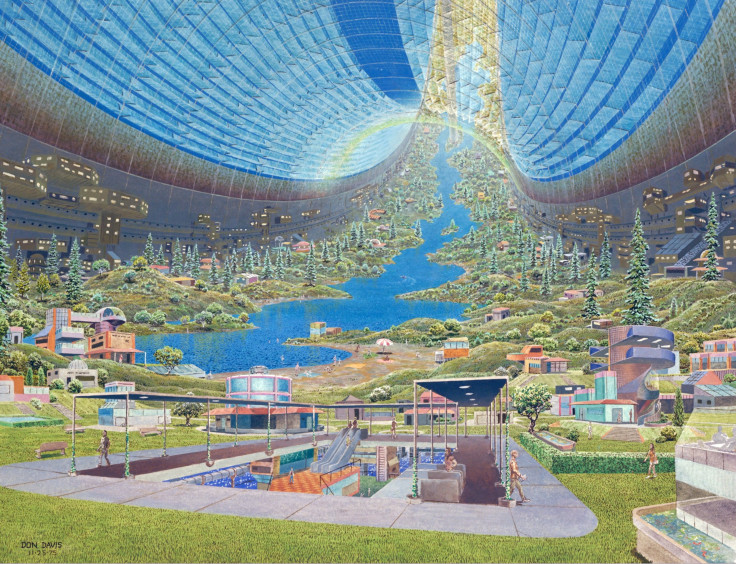Can Humans Live On Mars? Colonist Might Find Planet Deadly For The Immune System

If humans start a colony on Mars and live there for generations, will their descendants ever be able to visit Earth? It’s possible that returning to their planet of origin would kill them.
Long-term habitation on another planet or in a traveling spaceship might pose a problem to human evolution because space is devoid of the germs that keep our immune systems firing, and without regular exercise, the body’s defenses could atrophy or even disappear over many generations. Scientists will have to figure out exactly what happens to the immune system when an astronaut goes into space before the travelers go on any far-reaching missions. Those missions could be just beyond the horizon as leaders like SpaceX CEO Elon Musk push for exploration and colonization of other planets, space agencies learn how to farm in microgravity and more advances are made in rocket technology.
They are getting closer to an answer all the time. NASA has a team of immunologists studying how astronaut immune systems react while the crew stays aboard the International Space Station, in orbit around Earth. Their project is called Functional Immune and scientists already have observed changes taking place in that microgravity environment.
Read: Could Humans Living on Mars Become a New Species?
“We’re seeing alterations in the numbers of immune cells in the blood, reduced function in some of these populations and changes in the proteins cells make,” immunologist Hawley Kunz said. “Your immune system is relatively stable, so when you start seeing changes, it is often indicative of the presence of environmental stressors with increased clinical risk.”
Although they are not making the astronauts sick, latent viruses are reactivating, NASA has explained, and that happens when the immune system is weakened in some way. As the space agency better understands what is going on, it may be able to develop interventions.
Until scientists solve the puzzle, living away from Earth in the long-term could be a dangerous business. Evolutionary biologist and science writer Scott Solomon said when an organ or other body part is not being used, the body will redirect energy from it toward something more crucial, which explains why, for example, organisms living in dark caves may not have eyes.
“Our immune systems do require a lot of energy to maintain,” he told International Business Times. “And that suggests that our immune systems would start to break down, to atrophy.”

It might seem impossible that we wouldn’t be using our immune systems, but they may not have anything to do aboard a far-reaching spaceship or in a domed habitat on Mars. NASA itself has explained that astronauts are vaccinated ahead of time and aboard the ISS their food and drink is pasteurized and filters clear the air of bacteria and viruses. That doesn’t mimic the natural environment on Earth.
“We evolved to exist in a sea of microbes, and we evolved an immune system to mitigate that,” NASA immunologist Brian Crucian said. “Changes in physiology we are seeing on station have the potential to be greater on the way to Mars.”
And even if we could leave a space habitat and breathe out in the open on the Mars surface, unless there is life on that planet, there are no germs in the air to make us sick.
As far as we know, the only microbes on any other planet “would be the ones that we bring with us,” said Solomon, a professor at Rice University. But there may not be too many of those — vaccinations would knock out infectious diseases before boarding, and the transit time between Earth and Mars could be like a quarantine period that illnesses would not survive.
Although new infectious diseases develop on Earth all the time, that may not be the case on another planet if there is no livestock. Often illnesses from animals jump to humans and create outbreaks, but there are no native animals on Mars, as far as we know. And there are alternatives to bringing livestock like cows and chickens: Insects — other than mosquitoes — are a viable option, Solomon said.
“Insects are at least as, if not more, nutritious … and require a lot less resources” to raise than mammals and birds, he told IBT.
Read: Cancer Risk from Space Radiation for Astronauts Could Be Double
If all those factors, from sterile air to clean livestock, came together, they would create conditions under which human immune systems might atrophy, or even be phased out through natural evolution over the generations of space pioneers. But then that community would be doomed to stay on Mars, isolated from Earthlings. Solomon called it an “artificially induced separation” because of the risk of an infection passing to immune system-less Martians, killing them.
That’s a legitimate possibility. Similar things have happened on Earth, such as when European settlers first encountered Native Americans and transmitted the smallpox virus, which killed many of those indigenous people because their immune systems were not prepared to fight off the European pathogens.
If the Earth humans and the Mars humans no longer have contact — and are no longer exchanging genetic material — they will begin to evolve separately and eventually may become different species.
“There’s reason to believe that could happen much more quickly on Mars or another planet than on Earth,” Solomon said.
In that case, whether space explorers finally find living creatures on other planets or not, the colonists on Mars would become actual alien life.
© Copyright IBTimes 2024. All rights reserved.





















